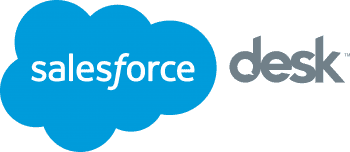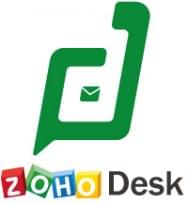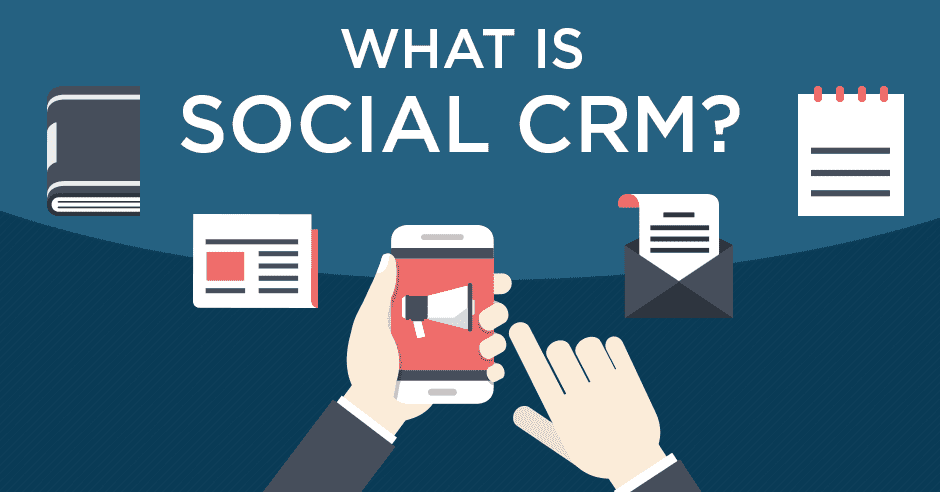What is Helpdesk Ticketing Software?
Helpdesk ticketing software is used to organize customer data in a way that’s easily accessible and increase your business’s effectiveness regarding customer support. They’re designed to provide customers with information and support regarding your products and services. Helpdesk software provides a digital ticketing system for employees to organize and respond to customer inquiries as well as create information portals on the company’s website. Helpdesk products may offer forums, phone calls with real humans on the other end of the line, or live chat capabilities.Big Business vs. SMB’s
Businesses of all sizes will benefit from helpdesk software. It doesn’t matter what your business sells, what services your business provides, how many customers your business serves, or how long your business has been operating. However, that doesn’t mean every single helpdesk software is made equally. There will be features that cater to both sides, so let’s break down some of these differences.Big Businesses:
- Big businesses will want helpdesk software that provides users with ticket managing features that categorize large numbers of open cases into more specific segments that can be organized automatically and be easily accessible. They can also afford IT consultancy services.
- It also makes sense for big businesses to look for helpdesk software that follow Information Technology Infrastructure Library (ITIL) guidelines. ITIL describes processes, procedures, tasks, and checklists that businesses can use for establishing integration with the organization's strategy and delivering value. This allows businesses to follow an outline from which it can plan, implement, and measure growth.
SMBs:
- It’s good to have structure, so SMBs shouldn’t completely eliminate helpdesk software that follows ITIL guidelines; it’s good for any business to follow a general outline, and it can help to learn from how the big players manage their massive data.
- However, it might not be entirely necessary depending on what kind of business you run or how many dedicated customers your business has. SMBs should look for helpdesk software with CRM and social media integrations.
Features to Look For
Helpdesk software comes with tons of features, but like we always say, you need to find the right provider that fits your business’ needs. We’re going to try to paint a clearer picture of what your business should consider when choosing a helpdesk.1. Support Ticket Handling:
The first, most obvious, and probably most important feature to look for is support ticket handling. Your helpdesk software should be able to receive tickets via email, organize them, create them from scratch, and edit them.
Ticket handling is extremely important because that’s how you and your departments and agents will initially interact with each other when determining something is wrong with your service or product.
2. Knowledge Base:
The knowledge base is like the help menu on any website you’ve ever been to. It’s where you go to find out more information about a business’ services and products. Here, users can usually find contact information.
It’s crucial for businesses to be as open as possible about how to contact them. The harder it is to reach them, the less thrilled your customers will be when they finally figure it out. The goal here is to minimize as much friction in the customer journey as possible.
3. Mobility:
It goes without saying that anytime you purchase any kind of business software, there has to be a mobility feature. Teams work remotely or on-the-go all the time now. It’s imperative to stay on top of all customer inquiries, no matter where you are, because clients are often looking for a reason to complain, and you don’t want to make it any easier for them to feel dissatisfied with their experience.
4. Integrations:
There are two kinds of integrations to look for: Social media and CRM. Tons of businesses take advantage of social media for marketing campaigns and community outreach.
Your business’ helpdesk software should make it easier for customers to voice their opinions, concerns, and general feedback on social media. This allows other customers to see how your business handled previous inquiries, which can be extremely beneficial.
It's a good idea to learn more about the do's and don'ts of social media customer service so your business can take advantage of what social media offers when it comes to maintaining a positive customer relationship status.
CRM integrations will help your business manage the customer data it collects from phone calls and other interactions customers have with the support center. Organization should always be a top priority.
5. SLA Management:
SLA agreements are reassuring for your customers because they outline what support services your business will provide, holding you accountable for timely responses and solutions to any problem that may arise.
Having these agreements organized is a great way for your business to keep track of each customer’s needs so no one feels like they’re being left in the dark.
6. Live/Chat Support:
Clients/Customers want to talk to agents in real-time. It’s that simple. As a customer, I don’t want to give businesses my email address if I feel like it’s going to get lost in some company inbox that never gets checked -- especially if my problem should only take a couple minutes to resolve.
Your business needs to have a live/chat support feature that allows customers to get quick answers to their problems, or direct them to where they need to go to find the answers themselves.
7. Response Automation:
If you’re a big business and you don’t have time to handle every single inquiry on an individual-level, response automation is a necessity. I’m honestly tired of being forced to email companies when I have an issue just to hear nothing back from them.
It’s rude and it makes me never want to do business with them again. Letting your customers know, even if it’s with a simple confirmation email, that you’re aware of the problem, and it will be looked at within a specific timeframe, is enough for most people.
Response automation is an easy and essential way to keep your customers happy. Canned Responses are also a great feature to take advantage of to speed up customer service support, and should also be considered when choosing a helpdesk software.
8. Customer Portal:
A customer portal is another great way for companies to be transparent with their customers when it comes to addressing any and all issues. Try to find a helpdesk software that offers a customer portal so users can address issues themselves, keep track of their inquiries, and search through previous interactions.
But what happens if you're already dealing with an angry customer? It's important to know how to deal with angry customers so they feel more inclined to use the helpdesk features your business provides and they continue to do business with you.
9. Forum:
A community forum connects your company to your customers, and connects your customers with each other. It’s comforting knowing that you’re not the only one with an issue. People thrive in a community and are always looking to help each other out, which can take much of the pressure off your business’ hands to resolve issues.
Forums are also useful because they are a place for customers to provide your business with valuable feedback. If there was a recent software update, and it didn’t go exactly as planned, your customers will be looking for blood.
Instead, give them a voice and use it to your business’ advantage. Moderate the obnoxious and totally unhelpful comments whenever necessary and your customers will become a backup support team.
10. Team Inbox:
This one’s nice and simple to understand: If your business’ customers are emailing their inquiries to you, they should all be going into an inbox that can be accessed by everyone.
There will be days and moments where you don’t have an answer, but someone else in the office will. Making these issues transparent to all your agents and allowing them to respond directly to customers will help resolve issues quickly and effectively.
11. Language Support:
Another obvious one: People speak different languages. Customers or clients from other countries might want to voice their opinions too. Find helpdesk software that offers language support, so all your customers can contact your business and not feel singled out.
12. Scalability:
It’s also important to find a helpdesk software that allows your business to upgrade and downgrade its subscription. Business needs change all the time.
If your organization is seeing a huge boost in customers and sales, make sure your helpdesk software allows you to upgrade so it can handle the surge. Same thing goes for when things are slowing down. Don’t pay more for what your business doesn’t need.
13. Reporting & Analytics:
Helpdesk software should come with a reporting and analytics feature if either it doesn’t come with CRM integrations or your business isn’t using CRM software (which it should!).
It can help keep track of basic things like how many tickets your business received, tasks completed, and tickets assigned to more specific things like average call duration or average customer satisfaction rating per agent.
The data collected from your business' helpdesk software will make you more aware of how and where to improve your customer service.
Compare the Top Helpdesk Software Solutions
| Features |  |  |  | |
| Ticket Management Features: | ||||
| Ticket Merging | Yes | Yes | Yes | Yes |
| Ticket Splitting | No | Yes | Yes | Yes |
| Custom Fields & Tags | Yes | Yes | Yes | Yes |
| Custom Views & Group Views | Yes | Yes | Yes | Yes |
| Macros | Yes | Yes | Yes | Yes |
| Custom Notifications | Yes | No | Yes | Yes |
| Ticket Notes | Yes | Yes | Yes | Yes |
| Automatic Ticket Refresh | Yes | Yes | Yes | Yes |
| Concurrent Agent Awareness | Yes | Yes | Yes | Yes |
| Assume Agent Identity | Yes | Yes | No | Yes |
| Multichannel Integration Features: | ||||
| Email Integration | Yes | Yes | Yes | Yes |
| Facebook & Twitter | Yes | Yes | Yes | Yes |
| Web Widget | Yes | Yes | Yes | Yes |
| Mobile App | Yes | Yes | Yes | Yes |
| Call Telephony | Yes | Yes | Yes | Yes |
| CTI Toolkit & Integrations | Yes | Yes | Yes | Yes |
| Helpdesk Management: | ||||
| Translated Agent Interface | Yes | Yes | Yes | Yes |
| Light Agents | Yes | Yes | Yes | Yes |
| Triggers | Yes | Yes | Yes | Yes |
| Workflows | Yes | Yes | Yes | Yes |
| SLA Management | Yes | Yes | Yes | Yes |
| Multiple SLA Policies | Yes | Yes | Yes | Yes |
| Game Mechanics | Yes | No | Yes | No, only with Zoho CRM |
| Customer Self-Service Features: | ||||
| Knowledge Base | Yes | Yes | Yes | Yes |
| Community Forums | Yes | Yes | Yes | Yes |
| Language Packs | Yes | Yes | Yes | Yes |
| Branded Support Centers | Yes | Yes | Yes | Yes |
| Multiple Unique Support Centers | Yes | Yes | Yes | Yes |
| Reporting & Analytics: | ||||
| Overview Dashboard | Yes | Yes | Yes | Yes |
| Agent & Group Performance | Yes | Yes | Yes | Yes |
| Customer Analysis | Yes | Yes | Yes | Yes |
| Industry Comparison | No | No | No | No |
| Custom Reports | Yes | Yes | Yes | Yes |
| Export Reports | Yes | Yes | Yes | Yes |
| Security: | ||||
| SSL Encryption | Yes | No, but follows HTTPS standards | Yes | No, but follows TLS 1.2 standards |
| Single Sign On | Yes | Yes | Yes | Yes |
| Two-Factor Authentication | No | Yes | Yes | Yes |
| Whitelisting | Yes | Yes | Yes | Yes |
| Sandbox Test Environment | No | No | Yes | Yes, with Zoho CRM |
| HIPAA Compliance | Yes | Yes | Yes | No |
| Disaster Recovery | Yes | Yes | Yes | Yes |
| More Details | freshdesk.com | zendesk.com | desk.com | zoho.com |



